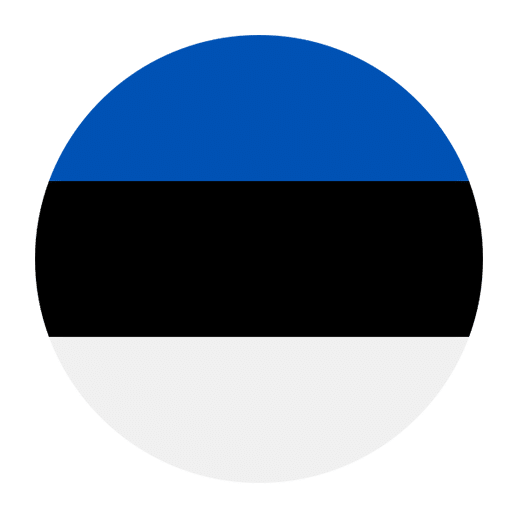Estonia, a Baltic gem rich in history, culture, and natural beauty, is a captivating destination for travelers. From the medieval charm of Tallinn’s Old Town to the serene landscapes of Lahemaa National Park, Estonia offers a unique experience for every visitor. While many Estonians speak English, especially in tourist areas, knowing some essential Estonian phrases can greatly enhance your travel experience. It not only shows respect for the local culture but can also help you navigate more smoothly through daily interactions. This article will introduce you to some fundamental Estonian phrases that every traveler should know.
Greetings and Basic Phrases
The first step in connecting with locals is through greetings and basic phrases. Here are some you should master:
Tere! – Hello!
This is the most common way to greet someone in Estonia.
Tere hommikust! – Good morning!
Use this phrase to greet someone in the morning.
Tere päevast! – Good afternoon!
A polite way to greet someone in the afternoon.
Tere õhtust! – Good evening!
Use this greeting in the evening.
Head ööd! – Good night!
A polite way to say goodnight.
Aitäh! – Thank you!
Showing gratitude is important, and this is the simplest way to say thanks.
Palun! – Please / You’re welcome!
This word serves multiple purposes. It can mean “please” when requesting something or “you’re welcome” in response to “thank you.”
Vabandust! – Excuse me! / Sorry!
Use this phrase to get someone’s attention or to apologize.
Jah – Yes
Ei – No
Introducing Yourself
When meeting new people, it’s useful to know how to introduce yourself:
Minu nimi on [Your Name] – My name is [Your Name]
A straightforward way to introduce yourself.
Rõõm tutvuda! – Nice to meet you!
A polite phrase to use after introductions.
Ma olen turist – I am a tourist
This can be useful to explain your presence in the country.
Ma olen pärit [Country] – I am from [Country]
This helps to establish where you are from.
Common Questions
Asking questions is an essential part of traveling. Here are some basic questions in Estonian:
Kuidas läheb? – How are you?
A common way to ask someone how they are doing.
Kus on tualett? – Where is the bathroom?
Very useful in any situation.
Kui palju see maksab? – How much does this cost?
Important for shopping and dining out.
Mis kell on? – What time is it?
Kus ma saan bussi võtta? – Where can I catch the bus?
Useful for navigating public transportation.
Kas te räägite inglise keelt? – Do you speak English?
Helpful when you need assistance in English.
Dining Out
Dining out is a significant part of the travel experience. Here are some phrases to help you at restaurants:
Menüü, palun – The menu, please
Ask for a menu politely.
Ma sooviksin tellida… – I would like to order…
Start your order with this phrase.
Kas teil on taimetoiduvalikuid? – Do you have vegetarian options?
Useful for vegetarians.
Võin ma arve saada? – Can I get the bill?
Essential for finishing your meal.
Kas see on vaba? – Is this seat free?
Ask this if you want to make sure a seat is available.
Shopping
Shopping can be much more enjoyable when you know a few key phrases:
Kui palju see maksab? – How much does this cost?
Kus on proovikabiinid? – Where are the fitting rooms?
Useful in clothing stores.
Kas teil on seda teises suuruses? – Do you have this in another size?
Helps when you need a different size.
Ma lihtsalt vaatan ringi – I’m just looking around
Use this if you are browsing and not ready to buy.
Kas te võtate kaardimakseid? – Do you take credit cards?
Important for making purchases.
Emergencies
In case of emergencies, knowing some specific phrases can be crucial:
Abi! – Help!
A universal call for assistance.
Palun kutsuge kiirabi! – Please call an ambulance!
Palun kutsuge politsei! – Please call the police!
Ma olen kaotanud oma passi – I have lost my passport
Important for resolving issues with lost documents.
Kas te saate mind aidata? – Can you help me?
A general phrase for asking for help.
Numbers and Time
Understanding numbers and time is essential for various activities, from catching a bus to shopping. Here are the basics:
1 – üks
2 – kaks
3 – kolm
4 – neli
5 – viis
6 – kuus
7 – seitse
8 – kaheksa
9 – üheksa
10 – kümme
Mitu tundi? – How many hours?
Mis kell? – What time?
Kell on [time] – It’s [time]
Transportation
Navigating through Estonia will be easier with these phrases:
Kus on lähim bussipeatus? – Where is the nearest bus stop?
Ma sooviksin piletit Tallinna, palun – I would like a ticket to Tallinn, please
Mis kell buss/ rong väljub? – What time does the bus/train leave?
Kas see buss läheb lennujaama? – Does this bus go to the airport?
Palun kutsuge takso – Please call a taxi
Accommodation
When checking in and out of hotels or other accommodations, these phrases will be handy:
Mul on broneering nimele [Your Name] – I have a reservation under the name [Your Name]
Kas teil on vabu tube? – Do you have any vacancies?
Mis kell on väljaregistreerimine? – What time is check-out?
Kus on hommikusöök? – Where is breakfast?
Kas teil on Wi-Fi? – Do you have Wi-Fi?
Useful Expressions
Here are some additional expressions that might come in handy:
Ma ei saa aru – I don’t understand
Useful when you’re having trouble with the language.
Korrake, palun – Please repeat
Ask this if you need someone to repeat what they said.
Aeglasemalt, palun – Slower, please
Useful if someone is speaking too quickly.
Ma ei räägi eesti keelt hästi – I don’t speak Estonian well
Helps set expectations in a conversation.
Kas te saate selle kirjutada? – Can you write it down?
Useful if you need something spelled out.
Conclusion
Learning even a few phrases in Estonian can significantly enhance your travel experience. It not only helps you navigate through various situations but also shows the locals that you respect and appreciate their culture. While many Estonians speak English, especially in urban areas and tourist spots, using their language can create a more genuine connection and open up more opportunities for meaningful interactions. So, arm yourself with these essential phrases and get ready to explore Estonia with confidence and respect for its rich linguistic heritage. Safe travels!

